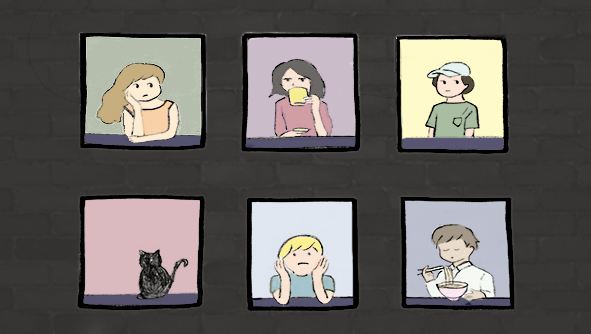
Loneliness is pervasive. It impacts everybody regardless of personality type, number of friends, or amount of socializing. And if left ignored, it can exacerbate declining mental and physical health.
At Queen’s, where students pride themselves on their accomplishments and activities, it can be difficult to find meaningful relationships and time to process feelings.
When attending a school so focused on socializing and school spirit, it can become easy for students to feel excluded from Queen’s culture because they enjoy spending time alone. Especially in first year—away from families, home and familiarity—students can leave the school because they feel left out of the socially-focused mindset permeating campuses.
Loneliness has been connected to health issues like heart attacks, anxiety, depression, drug abuse, and alcoholism. But when you’re busy with academics and extra-curricular commitments, the idea of self-care, let alone social fulfillment, can seem out of reach.
Social fulfillment is every bit as important as eating and sleeping to a person’s overall health. That’s why we should be mindful of existing strategies designed to help mitigate the effects of loneliness.
For instance, “social prescribing,” a new phenomenon giving way for doctors to prescribe museum visits and cooking classes to young and old people alike, encourages interaction and community. But these types of socially-friendly activities are often financially inaccessible.
As our society becomes increasingly secular, nothing’s replaced the accessible and low-effort social function of spiritual communities. There are currently few places allowing people to simply exist without spending money or exerting energy. At Queen’s, this rings especially true.
While clubs on campus exist to rally students around common goals, not every student has the opportunity or time to participate. Especially for grad students, communities that combat loneliness are few and far between. Considering loneliness’ contribution to intensified mental illness, students need common spaces where they can coexist.
While the University puts effort into facilitating a smooth transition for first-years at Queen’s, it should also bolster upper-year support for challenges like maintaining relationships and finding networks of like-minded people. This could take the shape of workshops or panels, led by either Student Wellness Services or our vast array of student government groups on campus.
As students, our daily responsibilities—attending lectures, submitting assignments, studying for tests—cut into our capacity to socialize. But in the midst of our busyness, support systems exist in the people around us experiencing similar feelings.
A big part of loneliness is based on our perception of how we fulfill our social needs. Increased University support and awareness of the widespread nature of isolation would go a long way toward ensuring that’s possible.
Tags
Health, isolation, loneliness, University
All final editorial decisions are made by the Editor(s)-in-Chief and/or the Managing Editor. Authors should not be contacted, targeted, or harassed under any circumstances. If you have any grievances with this article, please direct your comments to journal_editors@ams.queensu.ca.
